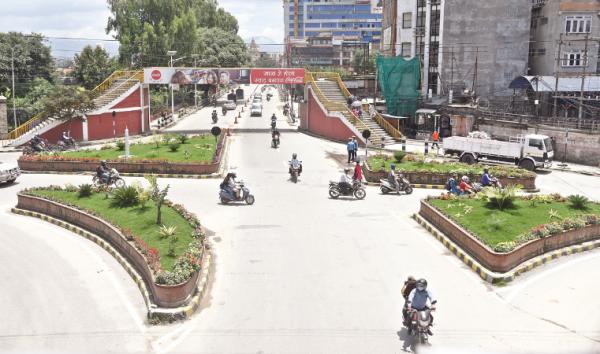17 Jul, 2020
By Aashish Mishra Rising Nepal
Kathmandu, July 17: For Asesh Nakarmi, life is finally getting back on track. The 29-year-old has gone back to work, his father’s hardware store is open and doing decent business and his younger sister is preparing for high school admissions. “It is nice to be returning to normalcy after a period of upheaval,” he said.
Nakarmi’s views are reflective of a large number of Nepalis who are slowly resuming their lives after more than three months of disruption. “We know that the virus is still here but we cannot put a stop to our lives forever,” said Sahil Maharjan, 34, who is planning an outing with his friends for the weekend. “Things are opening up and we should also try to get on with our lives while taking the necessary precautions.”
Although offices and businesses opened up from June 15 and private vehicles have also been plying the road for some time under the odd-even scheme, something still felt off for 62-year-old Hari Sharan Thapa. In the absence of public transportation, he had to walk to his office every day and that constantly reminded him of the pandemic raging on in the world.
But he too is now starting to feel that the atmosphere has returned to its pre-lockdown state. “Roads and alleys are once again crowded and the hustle and bustle has returned,” he said, adding, “The best thing is that public vehicles have returned. This has helped make things feel normal for me.”
But as regularity returns and the people get occupied, they are starting to forget that the coronavirus is still spreading in the country and have started relaxing down on some of the safety measures. This is what 45-year-old teacher Sama Parajuli is observing.
“My students share how their parents come home and start cooking or watching TV without washing their hands or that they are sometimes told that it is okay to go out without masks,” she said. “Even some of my colleagues, who used to be so cautious that they would even sanitize their hands after using their laptops or mobiles, have now become apathetic about things like social distancing.”
One such person who has become apathetic is Utpala Budhathoki. Her apathy comes, not from a lack of awareness or concern about safety, but from the hectic everyday activities, she said. “It was possible to be careful during the lockdown because there was nothing else to do and we were confined to our homes,” she shared. “Now, we have to go to work where we are bound to come in contact with others. We come late at night and except for basic hand washing, it is not possible to wash all our clothes and take a bath.”
“It is not that we don’t want to, but the resumption of normal life makes it impossible to follow every safety standard,” she spoke of her predicament in the current situation.





